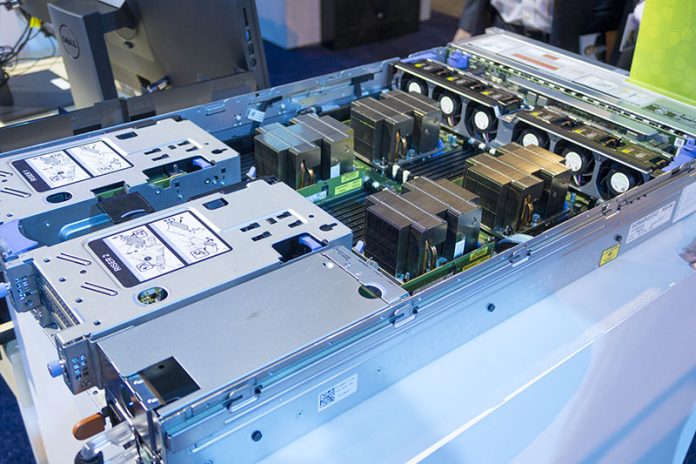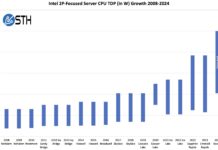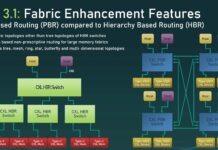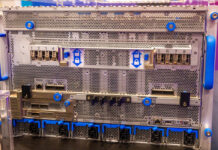Dell EMC PowerEdge R840 is the company’s newest addition to the company’s server portfolio. As a 2U design, the PowerEdge R840 is designed for packing RAM and storage into a system.
The 24 direct connect NVMe drives offer local low latency storage ready for NAND storage today and storage class memory tomorrow. When asked about which storage class memory the company is looking at, the company said Intel Optane is in the labs and will be available when ready. They also said they are evaluating other storage class memory options. These new options have the ability to greatly accelerate storage I/O for database and analytics workloads.
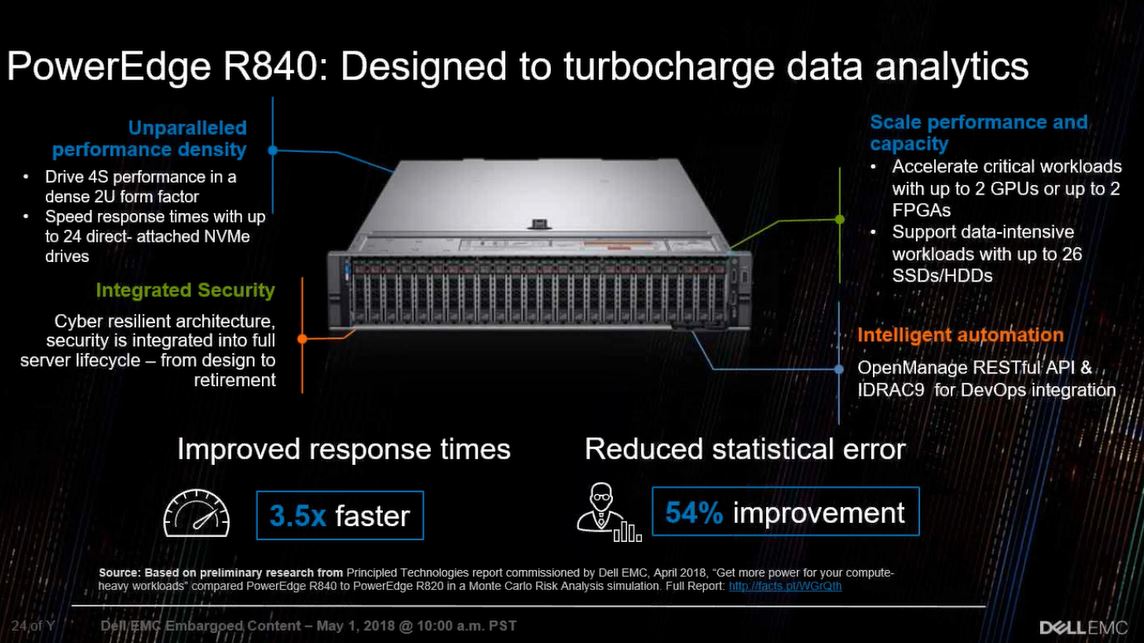
Aside from the four CPUs, support for high-memory Intel Xeon Scalable SKUs, Dell EMC is embracing the acceleration trend. The Dell EMC PowerEdge R840 supports up to two GPUs or four FPGAs supporting AI and machine learning workloads. Dell EMC said it is working with Intel FPGAs, which we recently covered, but also companies like Xilinx for their upcoming FPGA platforms.
Dell EMC PowerEdge R840 Positioning
This is one of two new quad socket servers that Dell EMC is launching at Dell Technologies World 2018. Here is Dell’s positioning slide which shows that it is intended for traditional database applications as well as NoSQL workloads.
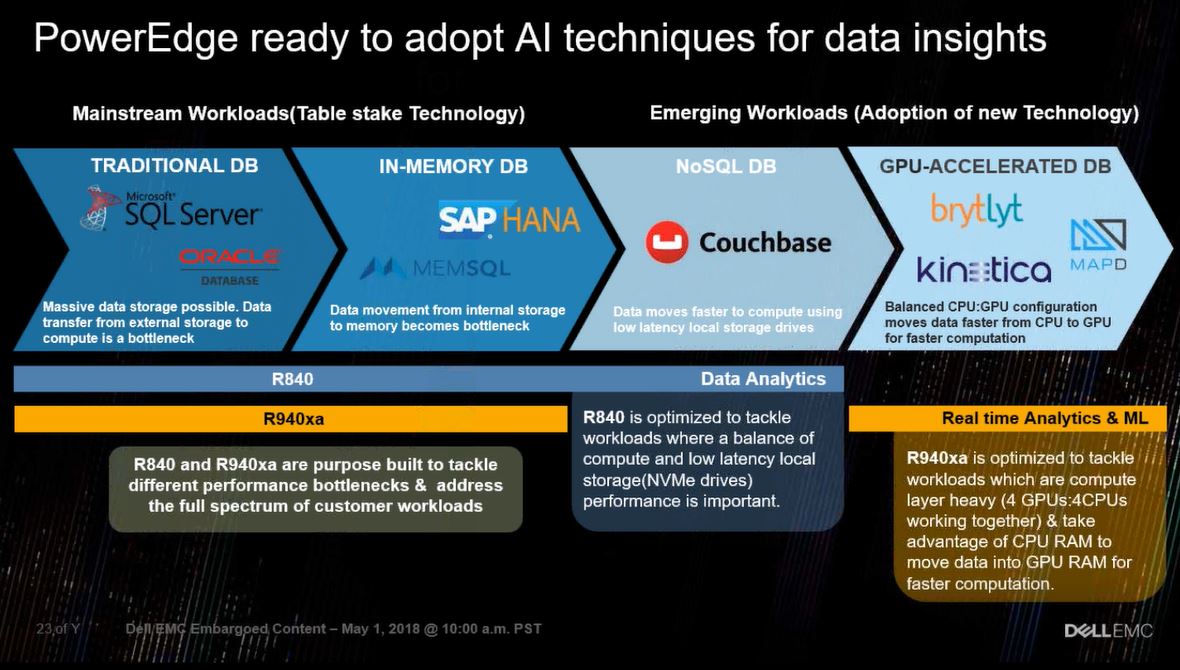
If you are looking for heavier GPU acceleration, the company is also launching the Dell EMC PowerEdge R940xa. The Dell EMC PowerEdge R840 is a 2U device with cooling optimizations for NVMe drives, four high-frequency CPUs, and PCIe based accelerators. This means it can handle large systems while maintaining relatively small rack sizes.
Like other PowerEdge solutions such as the Dell PowerEdge R740xd we reviewed, the Dell EMC PowerEdge R840 uses Dell’s OpenManage management suite and iDRAC which means it can be easily integrated into existing Dell infrastructure.

